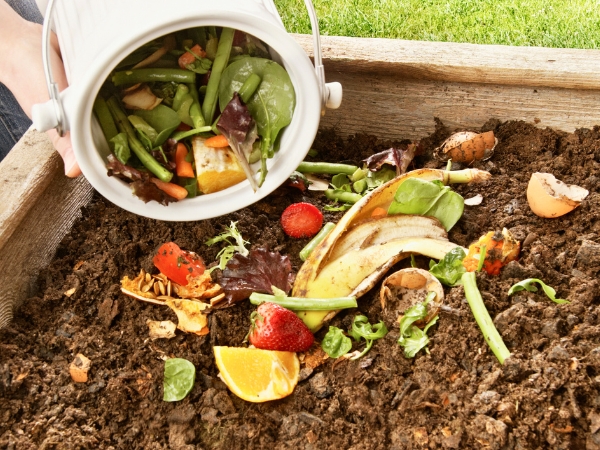
Starting A Compost Pile
How to Start Your Very Own Compost Pile from Scratch
Composting is a simple, eco-friendly way to recycle organic waste into nutrient-rich soil for your garden. By starting your own compost pile, you can reduce household waste, enrich your garden beds, and promote healthier plants. Here’s how to get started and what to keep in mind along the way.
Step 1: Choose a Location
Select a spot for your compost pile or bin. Ideally, it should be in a sunny or partially shaded area with good drainage. If you prefer a contained system, consider purchasing a compost bin or building one yourself using wood pallets or wire mesh.
Step 2: Gather Materials
Composting requires a mix of two main types of materials:
- Greens: These are nitrogen-rich materials that help with decomposition.
- Examples: Fruit and vegetable scraps, coffee grounds, grass clippings, and plant trimmings.
- Browns: These are carbon-rich materials that provide structure and aeration to the pile.
- Examples: Dried leaves, straw, shredded newspaper, cardboard, and untreated wood chips.
Aim for a balance of approximately 2-3 parts browns to 1 part greens.

Step 3: Build the Pile
Start by adding a layer of browns (like dried leaves or straw) to the bottom. Follow this with a layer of greens (such as kitchen scraps or grass clippings). Alternate these layers as you build the pile, keeping it moist but not soggy—similar to a damp sponge.
Step 4: Turn and Aerate
Aeration is key to speeding up the composting process. Turn the pile with a garden fork or compost aerator every 1-2 weeks. This helps to mix the materials, introduce oxygen, and maintain even decomposition.

What to Compost and What to Avoid
What to Compost:
- Fruit and vegetable scraps
- Coffee grounds and tea leaves
- Crushed eggshells
- Yard waste (grass clippings, leaves, small branches)
- Shredded paper and cardboard (uncoated)
- Sawdust from untreated wood

What NOT to Compost:
- Meat, fish, and dairy products (these attract pests and can create odours)
- Fats, oils, and grease
- Pet waste (contains harmful pathogens)
- Diseased plants
- Weeds with seeds
- Non-biodegradable items like plastic, glass, or metal

Additives to Help the Compost Along
To boost your composting process, consider adding these items:
- Compost Activators: These products contain beneficial microorganisms to accelerate decomposition.
- Garden Soil: A handful of garden soil can introduce helpful bacteria and fungi to your pile.
- Manure: Well-aged animal manure (from herbivores like cows, horses, or chickens) is a great nitrogen source.
- Wood Ash: Adds potassium and raises the pH, but use sparingly.
Benefits of Using Compost in Your Garden
Compost is often referred to as “black gold” for a reason. Here’s how it can benefit your garden:
- Improves Soil Structure: Compost enhances soil’s ability to retain moisture and nutrients, which is crucial for plant growth.
- Feeds Your Plants Naturally: It’s packed with essential nutrients like nitrogen, phosphorus, and potassium, which are slowly released over time.
- Reduces Garden Waste: Composting minimizes the amount of organic waste sent to landfills.
- Encourages Healthy Microbial Activity: A thriving soil ecosystem supports robust plant roots and reduces the risk of diseases.
- Cuts Down on Chemical Fertilizers: Using compost reduces reliance on synthetic fertilizers, which can harm the environment.
Final Tips
- Keep your pile moist but not waterlogged.
- Chop large items (like branches or melon rinds) into smaller pieces to speed up decomposition.
- Avoid adding too much of one material (e.g., only grass clippings), as this can create an unbalanced pile.
Starting your compost pile may seem intimidating at first, but with these tips, you’ll soon be turning kitchen and yard waste into a valuable resource for your garden. Happy composting!
